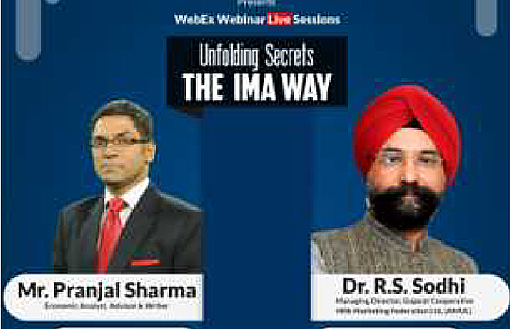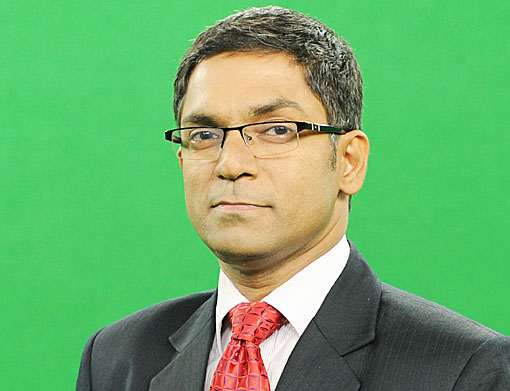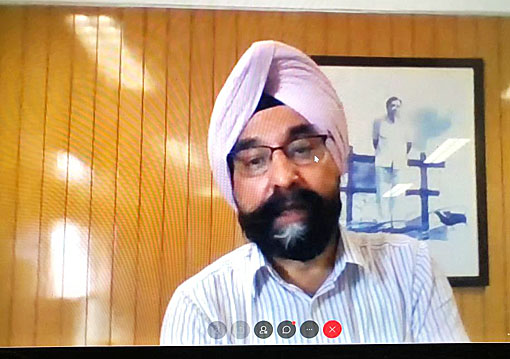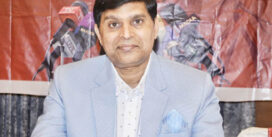Changes are happening at a severely accelerated rate but we need to accept the change

Indore Management Association organized it’s New WebEx Webinar Live session series, Unfolding Secrets: THE IMA Way on Tuesday, April 28, 2020. Speakers for the session were Mr. Pranjal Sharma, Economic Analyst, Advisor & Writer & Dr. R.S. Sodhi, MD, GCMMF Ltd., AMUL.
Mr. Pranjal Sharma is an economic analyst, advisor and writer who focuses on technology, globalisation and media. He guides projects on economic forecasting, business intelligence and public diplomacy with Indian and global organisations.His new book is India Automated: How the Fourth Industrial Revolution Transforming India.
Dr. Rupinder Singh Sodhi is Managing Director of Gujarat Cooperative Milk Marketing Federation, Ltd., (AMUL), which is India’s largest Food Products organization with annual turnover of more than Rs. 38,550 crores (US $ 5.2 billion) during 2019-20. Dr. Sodhi has 38 years of rich experience in leading & developing cooperative sector within Indian dairy industry, having served dairy farmers in several capacities. He has been responsible for creating the current structure of the AMUL, enabling the organization to maintain and enhance its leadership status within Indian dairy industry. Member unions of GCMMF are procuring 25 million liters of milk per day from more than 18,600 Village Dairy Co-operative societies.
Mr. Pranjal Sharma started the session by explaining why automation is required POST COVID ;
Why Automation? :

- DIRTY & DANGEROUS – Workers in industrial zones still work in abysmal conditions. Physically dangerous labour is a common sight at construction sites across the country. Mechanization has enhanced, but Indian engineering, procurement and construction (EPC) companies have a poor track record of worker safety. Dirty and dangerous manual scavenging is still the norm in most cities.
- DULL – The banking sector has no choice but to use automation-based process to manage this rise in the number of customers and users. This is dull work. A purely human effort to manage rising bank accounts will be time-consuming and inefficient.
- DIFFICULT – Difficult work includes paperwork that government clerks have to sift through. Tax departments are pushing for cashless economy and using electronic tax returns. The taxmen now have to use automation to investigate and seek fraud. Using automation, they can also process returns faster and give refunds to taxpayers with lesser time lag.
Further continuing; he talked about the key trends :
- Move to Cloud Computing – Moving towards e- learning. Many organizations will move towards cloud & issue of cyber security will increase.
- Increase in Process Automation – A large and increasing working population, automation is growing across sectors – from traditional industries in manufacturing to government systems and even the services sector – and functions – from hiring processes to tax management to personal finance to water management and electricity conservation. There is now at least one element of automation built into the system in almost everything we see, experience and use.
- HR Management Technology – Profiling of candidates for performance, recruitment etc. will be in a formatted way & GIG Economy concept will be followed; where a group of consultant works on a project basis.
- Constant Learning –Degree & certificates acquired in the past in an organization / entrepreneur is of no use. Concept of physical classroom education has been shifted to online education.
- Electronic Governance – Much of the delay in decision making happens because of outdated information systems. By the time the reports are analyzed and corrective actions are taken, the company would have suffered faulty products or the time for taking predictive action would have passed.The transparency created by data-generation adds to the robustness of decision-making.Several examples of govt.has been merged & online. Traffic control, Drones, AI to gather data EgArogyaSetu.
- National Innovation – India has to create their own platforms for their needs. Creation of Video conferencing platformis must. For eg- Mygov.in
He concluded the session by stating that; Changes are happening at a severely accelerated rate but we need to accept the change.
Dr. R. S. Sodhi started the session by stating that; Dairy Supply chain starts from cow & ends with customer. It is a non stoppable supply chain. It works without a single minute stoppage. It is the largest sector amongst any other. India hold largest market share of milk.

Dr. Sodhi shared that one of the problems that came by during the first few days of the situation was procuring labour. “The labour count had dropped to 25-30% and we had to manage passes for them. However, the situation has now stabilised as local authorities are also supportive as they know its Amul and milk is an essential commodity. The problem labourers were facing was with lack of public transport.
Dr. Sodhi asserted that despite the issue with transportation of workers and other logistics, Amul has been able to keep it going. The company works with a lot of contract labourers as well. The company ensures it gives incentives and free meals to employees in the factories, he said. “Your workforce has to understand the importance of your purpose which needs to be conveyed. People should work willingly, you can’t force someone saying that you have to come to the factory. You have to assure their and their family’s safety and hygiene,”
Dr. Sodhi further revealed, “In the first three days of the situation, our sale was 20% more than usual as people were panic-buying. The volume was more. While some purchased extra, others couldn’t get it.”
However, he observed that soon the demand reduced by 30% as various sectors like hotels and restaurants had to pull plugs on their operations and were not buying milk, cheese, etc.


